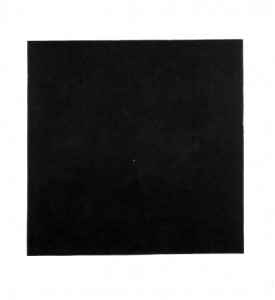PIPA and SOPA – Anti Piracy or Anti Internet?
PIPA, the Protect IP Act sponsored by the Senate, and SOPA, the Stop Online Piracy Act sponsored by Congress, are closely related and can be considered as two different versions of the same anti piracy bill. Both bills have identical goals, which are for the most part to protect intellectual property from privacy, and provisions that are designed to formally enforce anti piracy laws. The only difference lies in the wording of the two separate bills.
Main differences between PIPA and SOPA :
*Â SOPA requires search engines such as Google or Yahoo to remove a “foreign infringing site” from their indexes. This SOPA provision is the most widely criticized and hardest to digest by internet users of all stripes. PIPA does not have this provision.
*Â PIPA has substantially more stringent court intervention requirements regarding prosecution of infringing websites than SOPA does.
Similarities of PIPA and SOPA :
*Â U.S. based payment services such as Paypal, or American advertisers are to stop conducting business with foreign copyright infringing websites.
*Â Both PIPA and SOPA originally required Internet Service Providers (ISPs) to use Domain Name System (DNS) blocking to deny access to specific websites, but both PIPA sponsor Senator Patrick Leahy and SOPA sponsor Representative Lamar Smith have since backtracked on their own positions.
*Â Both bills would make it illegal for any party to inform users of means to access blocked websites, meaning that websites such as Facebook or YouTube that use user generated content will have to police their sites to ensure that no circumvention related posts are made, or face legal consequences.
*Â PIPA and SOPA also allow ISPs to voluntarily block access to foreign websites suspected but not nesserarily proven of possibly engaging in illegal activities.
On Saturday, three presidential aides authored a blog post to officially declare the White House position on the issue of PIPA and SOPA :
*Â Howard Schmidt, cybersecurity coordinator for the National Security staff.
*Â Aneesh Chopra, Chief Technology Officer for the United States.
*Â Victoria Espinel, intellectual property coordinator for the White House.
The White House is now in direct opposition of PIPA and SOPA as they are written, although the Senate is still expected to bring the PIPA bill to the floor by next week.
The language contained in both bills is so vague that experts have pointed out that even U.S. based websites can be affected, not just foreign ones. Innocent intermediaries such as ISPs, search engines or social websites will be regulated under the new laws, which would put an unbearable financial burden on them by having to become the unofficial internet police for the government. Even the open source software community will be deeply affected. Tools used by civil rights activists around the world to circumvent internet censorship by countries such as Syria, Iran or China would be rendered illegal under PIPA and SOPA, putting the U.S. in the same league as those authoritarian regimes.
The huge internet groundswell of opposition to PIPA and SOPA that started last week on a popular level has today been joined by well known and popular websites that have gone black , some for an entire day, and includes Wikipedia, Reddit, Mozilla, with Google placing a black rectangular box over its ubiquitous logo. In another development today, three Senators have withdrawn their support of PIPA and SOPA, Sen. Marco Rubio, Sen. John Cornyn and Sen. Orrin Hatch, one of the original co sponsors of PIPA.
Critics of PIPA and SOPA have furthermore pointed out that copyright holders already have the power to remove infringing material from websites under the DMCA procedure, which sadly has been abused by at times removing entire websites instead of just the offending material.
As an alternative, opponents of PIPA and SOPA have proposed the “Online Protection and Enforcement of Digital Trade Act”, or “Open Act”, but unfortunately the bill has failed to gain support form either Congress or the Senate.
ACT II ?
